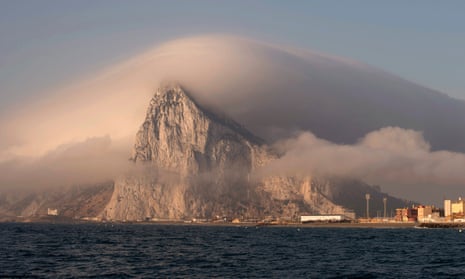British citizens will not need a visa for short trips to countries in the EU, following Brexit, now that EU lawmakers have struck a deal over a law that had been blocked by dispute over Gibraltar’s status.
It was agreed that British travellers would be granted a visa waiver for stays of up to 90 days in any 180-day period, as long as the British government upheld its promise not to require visas for EU citizens.
Six British MEPs voted against the visa waiver deal for British citizens reached with EU ministers because they objected to a footnote in the text that described Gibraltar as a colony.
The MEPs against the change included Labour’s Claude Moraes, who was forced to stand down from his job as lead negotiator on this draft law because of the row. Moraes, the first British national to be pushed out of an EU job over Brexit, lost his position despite protests from colleagues, who pointed out that he was representing parliament’s position.
Moraes confirmed he had voted against the visa-free travel deal, due to the Gibraltar issue, when the agreement came before the parliament’s civil liberties committee on Wednesday morning. The Conservative MEP Daniel Dalton also voted against the law for the same reason.
“Securing visa-free travel in the event of a no-deal Brexit is vitally important,” Dalton said. “That is why the language about Gibraltar being a colony had no place in this draft law. I couldn’t vote for it in good conscience, given the Gibraltarians overwhelmingly want to remain British.”
One current and three former Ukip MEPs voted against the law for the same reason.
“It is not a secret that the negotiations were blocked over the Gibraltar footnote,” said the Bulgarian socialist MEP Sergei Stanishev, who took over the file from Moraes. “The [EU] council’s irresponsible approach seriously undermines the spirit of sincere cooperation between the EU institutions, and I hope it will not be repeated in the future.”
The Gibraltar colony footnote was disliked by many EU diplomats, but they decided not to stand against Spain, an EU member state, over a country that has chosen to quit the block. Spain had insisted on the footnote, which describes Gibraltar as “colony of the British crown” and refers to the dispute over sovereignty of the Rock between Spain and the UK.
The visa waiver will apply to all EU member states except Ireland, which already has a common travel area with the UK allowing free movement between the two countries. The visa waiver also applies to Norway, Liechtenstein, Iceland and Switzerland, non-EU countries that belong to the border-free travel zone.
The EU said the law should be published in the EU rule book before 12 April “to prepare for a no-deal Brexit on that date”. The law still has to pass through formalities, including a vote in the full European parliament on Thursday.
British citizens at the moment have the right to live and work in any EU member state, but the law spells out that that right will lapse after Brexit.
Separately, it emerged that travellers from the UK would no longer be allowed to bring pork pies, bacon sandwiches or cheddar cheese into the EU in the event of a no-deal Brexit. If the UK crashes out of the bloc, individuals will no longer be allowed to bring meat, cheese or any other animal-based food into the EU, although commercial imports will be allowed subject to checks and controls.
“Any animal-based product is probably not what you want to put in your luggage,” said an EU official. “That is the end of that kind of souvenir that you can bring back from the UK.”
“You can bring some very serious diseases into the EU by bringing these type of products,” the official said referring to the EU’s strict standards on food safety the UK would no longer follow under a no-deal Brexit. “You could have commercial imports of the sausage by the local Marks & Spencer if you really wanted to sell those sausages [in the EU],” said the official.
